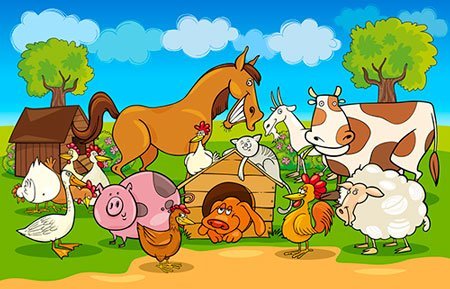Old MacDonald Had Family Governance (E-I-E-I-O)
Over the past two weeks I’ve been at the cottage trying to unwind and unplug a bit.
I woke up early one morning, and by the time I got up to start the coffee-maker, the bare bones of this blog post were already complete.
If you’ve ever wondered, “what kind of person wakes up thinking about family governance, while on vacation?” you now have your answer.
Because of the happy coincidence of the first letter of the adjectives I’d been dreaming about, this “Old MacDonald” blog was born.
Without further ado, here are my “E-I-E-I-O” of family governance.
Egalitarian
Family governance should be egalitarian in nature.
Family goverance is not the same as business governance. A business should be a meritocracy, where everyone’s rights and obligations stem from their place in the hierarchy.
In a family, simply being born into the family gives you a place at the table, and everyone’s place is more or less equal to everyone else’s.
So in the “family circle” governance needs to be much more “egalitarian”.
Intentional
Family governance needs to be intentional.
When I use the word “intentional”, I’m getting at the idea it doesn’t just happen by itself. You need to work at it.
Most families don’t “do governance” because they don’t need to.
If, however, your family has sufficient assets that are expected to survive the current leading generation, and continue to be owned by a group of family members in the next generation, then you absolutely NEED family governance
And you must also realize that it needs to be intentional, so you will need to work at it.
Evolving
Family governance needs to evolve.
This may not be the best time in history to reference US politics, but I’ll do it anyway.
The “founding fathers” came up with their constitution, which has served as the base of their governance for over two centuries.
But in the meantime, those who have been governing the country have amended it a couple of dozen times.
My point is that governance must naturally evolve over time. Don’t expect to be able to figure it all out in the first go around.
“Start where you are, use what you’ve got, do what you can”. And then keep moving forward.
Incremental
Family governance should be incremental.
It usually shouldn’t evolve in big spurts. A little bit at a time will almost always be better.
A family is made up of various different members (with a “quack quack” here and a “moo moo” there), and you can only go as fast as the slowest member.
Those who want to go faster will often lament the others who slow everything down, but they’ll also help the family from acting too quickly.
“Our Own”
The family needs to OWN their governance.
The governance that any family puts in place will be unique to that family.
It needs to be created “by the family, for the family” if it is to be useful.
Only by creating their own governance, will the family “own” their governance.
They cannot buy it, “off the shelf”, anywhere.
And On That Farm He Had Some…
Because there are so many creatures on the farm, Old MacDonald needs to proceed very thoughtfully and carefully.
He would be wise to bring in an outsider, preferably one who has some experience and training, to facilitate the development of the family’s governance.
When I said “By the family, for the family”, note that I never said “by themselves”, in fact most will not get very far without an outside perspective.
Intentionality of the “Project”
In fact, the outside person who is brought in also should also act as the “project manager”, and a large part of their role is to keep things on track and moving forward.
Family governance is not a natural thing, and it needs to be nurtured along the way.
If your family intends to successfully continue to own assets together into the following generation(s), you cannot ignore family governance.
There are all sorts of different animals in a family, and if you want them all to sing together, you’ll need to work at it.




